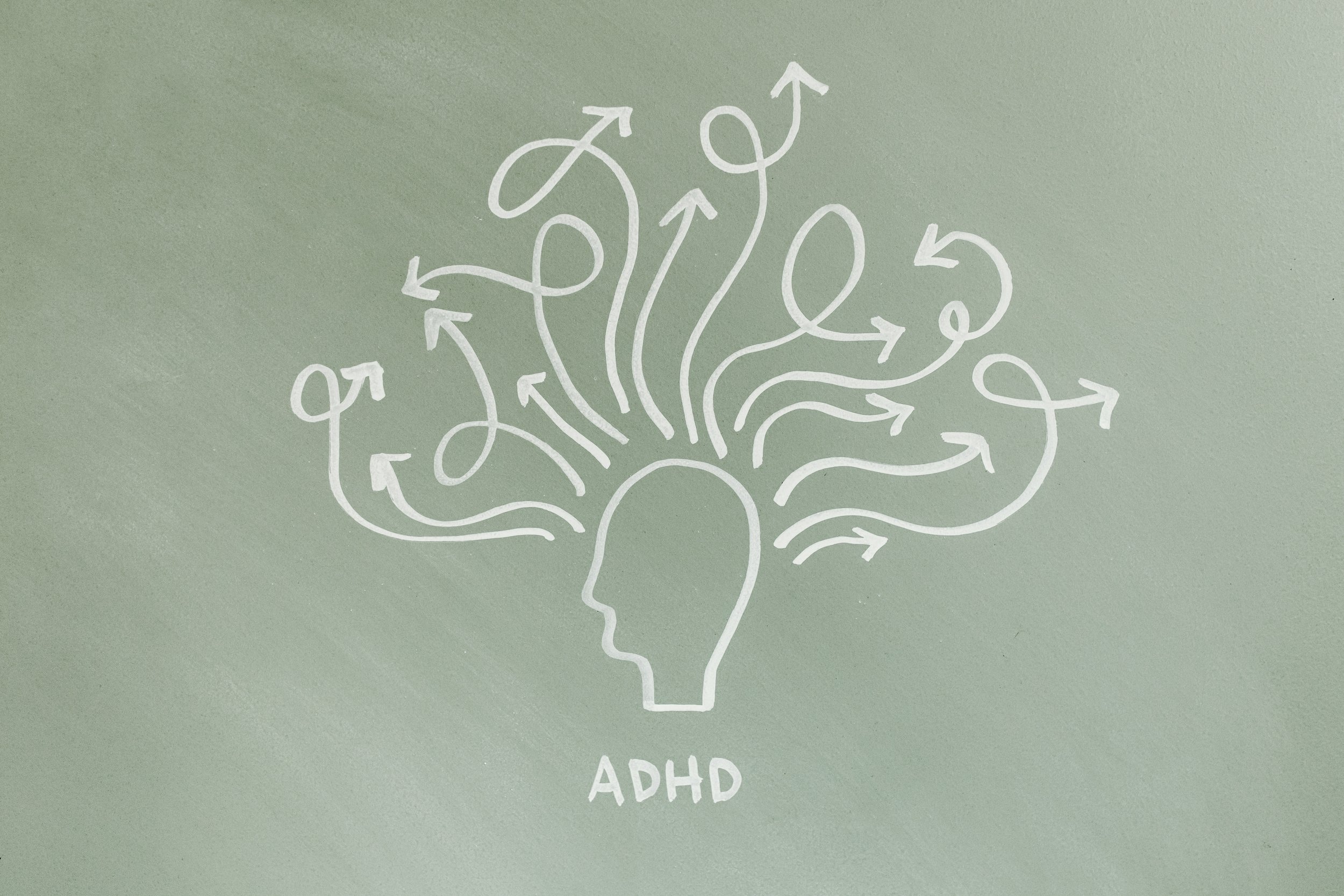Living with ADHD
My own story based on these four letters… A.D.H.D
Written by Emma Ketley
Ever had a moment where just four letters, which flip your world upside down? Yep, me too.
So there I was, back in 2022, sitting in a psychiatrist's office to attend an assessment for ADHD. An appointment that I was in a state of ambivalence over; simultaneously knowing I needed to have confirmation, whilst somehow also doubting my right to be there. I was far from the traditional image of the disruptive ADHD boy.
I was in my mid-forties, I had established a solid career, and you know, I had done the washing up earlier that morning.
"It's clear you've taken it on long enough," the psychiatrist said, leaning forward with a knowing look "You have a lot of awareness and good strategies, yet... with your ADHD, medication will be beneficial."
Hold up. What?
So there I was, suddenly, a late diagnosed adult only just discovering that their entire collection of quirks, (mis)adventures, and "Emma-isms" actually had a clinical name: ADHD. And the irony of this "new information" being delivered to a health professional who was a Mental Health Therapist and a ADHD Coach? Well, like they say - you can't read the label clearly from inside the jar, but well-played Universe, well-played.
Post-ADHD diagnosis is a significant time. You may find that you want to consume all the podcasts and buy every single ADHD book you can; yet self-discovery after late diagnosis will be your own process to navigate.
However, in the spirit of being Enriched by Experience - and to borrow some concepts from the Kubler-Ross Model - these are the stages of change that I personally went through in the adult diagnosis of my own ADHD.
1. Denial (With a Side of Bargaining)
Denial and Bargaining were perhaps the first stages I encountered. In my early denial, I felt like an imposter - I questioned the ADHD diagnosis. Then I quickly moved into bargaining. I did a lot of reading, drawn to social media accounts promoting ways to "overcome" ADHD - creating a sense that I was just really one magical productivity hack away from claiming a magical "superpower", or one habit stack away from being "normal". (Spoiler: Normal is overrated, and either-way, your worth isn't measured in completed to-do lists.)
2. Anger & reactive sadness: The Dynamic Duo
These two emotions showed up and stayed for a while. I realised how consistently my ADHD had shown up across my life, and how it continued to impact it, like some sort of trouble-making gremlin. Internal cries of "Why didn't anyone notice earlier?" became a theme, along with a sense of loss and grief based on the imaginings of "If I had known, what could have been?".
I did a fair bit of journalling during this anger and sadness stage, and found that talking with ADHD-informed people helped me stay more grounded, objective, and balanced. However, it was in working through this stage (-for all the emotional messiness that it was-),that I re-discovered what was important, I reconnect with what I truly valued, and I gained insight into what I wanted more of in my life.
3. The Beach Moment (AKA letting go of Sadness and moving into Acceptance
Towards the later stages, the anger faded and I personally was left with sadness.
Sadness for all the "lost time" mis-spent in self-criticism, misunderstanding myself, and missing my own moments of achievement. I realised I owed the younger me an apology. So at this stage, I took a picture of my younger self to the beach, and, I apologised. I looked at the photo of my younger self, and very naturally found myself saying: "hey, you were actually pretty amazing all along". This insight led to my acceptance and recognition of who I really was. That sensitive, curious kid who always felt she was "too much", "not good enough" and thought she needed to continually "try harder?" - Turns out she was exactly enough.
The second Plot Twist
So here's the thing about ADHD diagnoses later in life – they're not about finding out what's "wrong" with you. Nope, late diagnoses are about gaining insight, re-discovering who you are, and taking stock to optimise all the strengths you have built up so far.
Medication and new "ADHD hacks" can definitely help; but the real game-changer? It's realizing that many of those strategies you've developed over the years weren't compensations – they were innovations.
The "ever-after" part
If you have had a recent late-diagnosis, maybe your story is really just beginning. Look beyond the 'fix-it' mindset because you are not broken; find your neuro-affirming and informed people, and really discover yourself.
You don't have to do it alone.
Need help to unlock the potential of your life living with ADHD?
Enlist Enriched By Experience as your ADHD Coach or Therapist. Learn more about how EBE can assist you, take a look at our services…


